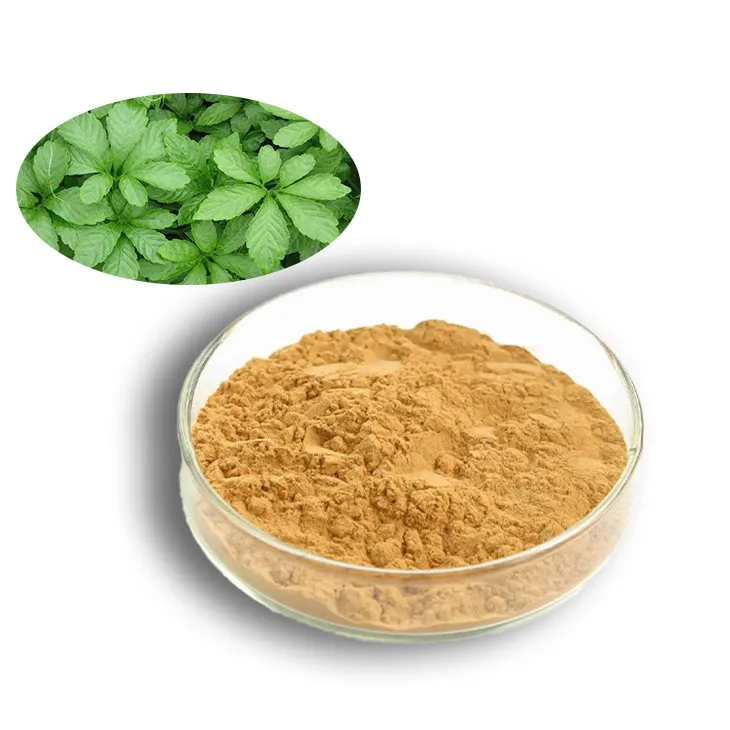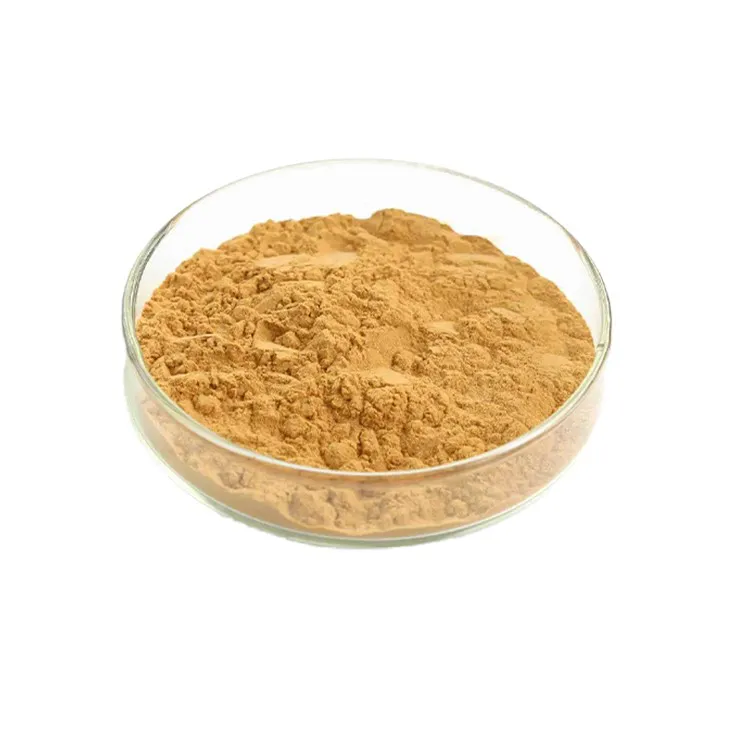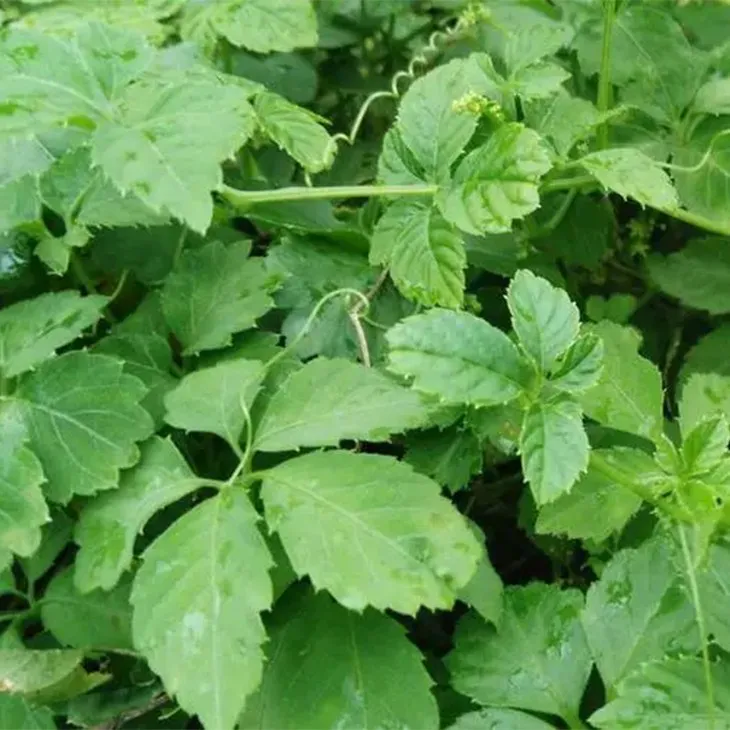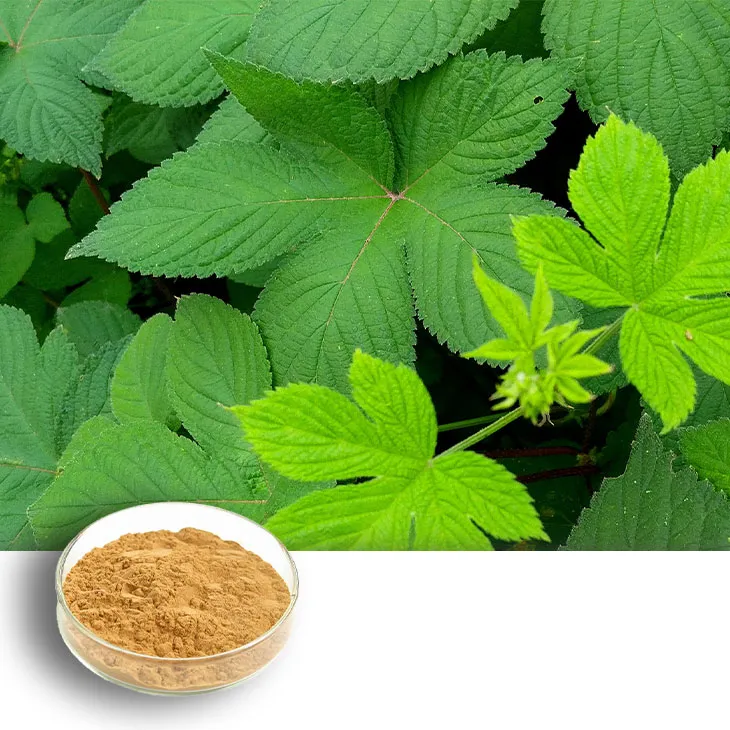- 0086-571-85302990
- sales@greenskybio.com
Use Gynostemma pentaphyllum extract? Make sure you source from sustainable suppliers!
2024-12-21

Introduction
Gynostemma pentaphyllum, also known as Jiaogulan, has been gaining significant attention in recent years due to its numerous potential health benefits. Its extract is being used in a wide range of products in the health and wellness industry, such as dietary supplements, herbal teas, and skincare products. However, as the demand for Gynostemma pentaphyllum extract grows, it is crucial to ensure that it is sourced sustainably. Sustainable sourcing not only guarantees the long - term availability of this valuable ingredient but also has far - reaching positive impacts on the economy, environment, and society.

The Value of Gynostemma pentaphyllum extract
Gynostemma pentaphyllum is rich in saponins, flavonoids, and polysaccharides, which are believed to contribute to its various health - promoting properties. In traditional Chinese medicine, it has been used for centuries to enhance immunity, improve cardiovascular health, and relieve stress. Modern research has also shown potential anti - oxidant, anti - inflammatory, and anti - cancer effects. As a result, the extract of this plant has become a popular ingredient in the health and wellness market.
In the dietary supplement industry, Gynostemma pentaphyllum extract is often used to boost energy levels, support healthy digestion, and promote overall well - being. Herbal tea products containing this extract are marketed for their calming and detoxifying effects. In skincare, it is being explored for its potential anti - aging and skin - nourishing properties.

The Importance of Sustainable Sourcing
Economic Benefits
Sustainable suppliers of Gynostemma pentaphyllum extract play a significant role in the local economy. By working with local farmers and communities, they ensure a stable income source for these individuals. For example, in rural areas where Gynostemma pentaphyllum is cultivated, sustainable sourcing initiatives can create employment opportunities in farming, harvesting, and initial processing of the plant.
Moreover, sustainable sourcing can lead to the development of a more stable and long - term market for Gynostemma pentaphyllum products. This, in turn, encourages investment in research and development related to the plant, such as finding new extraction methods or developing innovative products. It also helps in building a positive brand image for companies using the extract, which can attract more customers and increase market share.
Environmental Benefits
Sustainable cultivation and extraction practices are essential for protecting the environment. When sourcing Gynostemma pentaphyllum extract sustainably, suppliers typically follow organic farming methods. This means avoiding the use of synthetic pesticides and fertilizers, which can have harmful effects on soil quality, water sources, and biodiversity.
In addition, sustainable suppliers often engage in conservation efforts. They may ensure that the harvesting of Gynostemma pentaphyllum is done in a way that does not damage the natural habitat of the plant or other associated species. For instance, they might limit the amount of plant material harvested from a particular area to allow for natural regeneration. This helps in maintaining the ecological balance of the region where the plant is grown.
Social Benefits
Working with sustainable suppliers has positive social implications. It promotes fair trade practices, ensuring that farmers and workers involved in the production of Gynostemma pentaphyllum extract are paid fairly for their labor. This can improve the living standards of local communities, especially in areas where economic opportunities may be limited.
Sustainable sourcing also often involves community development initiatives. Suppliers may invest in local infrastructure, such as building schools or improving healthcare facilities. They may also provide training and education to farmers on sustainable farming practices, which not only benefits the production of Gynostemma pentaphyllum but also has a broader positive impact on the local agricultural knowledge base.

Challenges in Sourcing Sustainably
Despite the clear benefits, there are several challenges in sourcing Gynostemma pentaphyllum extract sustainably. One of the main challenges is the lack of awareness among consumers. Many end - users may not be aware of the importance of sustainable sourcing and may simply choose products based on price or brand reputation.
Another challenge is the difficulty in verifying the sustainability of suppliers. There is currently no comprehensive global standard for sustainable sourcing of Gynostemma pentaphyllum extract. This makes it hard for companies to ensure that they are truly working with sustainable suppliers. Some suppliers may claim to be sustainable without actually following proper practices.
Additionally, the cost of sustainable sourcing can be higher in the short - term. Sustainable farming methods may require more labor - intensive practices or the use of more expensive organic inputs. This can lead to higher prices for the extract, which may be a deterrent for some companies, especially those operating on tight profit margins.

Solutions to Promote Sustainable Sourcing
Consumer Education
Educating consumers about the importance of sustainable sourcing is crucial. This can be done through various means, such as product labeling, marketing campaigns, and educational content on company websites. For example, companies can use labels to clearly indicate that their Gynostemma pentaphyllum extract is sourced sustainably. Marketing campaigns can highlight the benefits of sustainable sourcing not only for the environment but also for the consumer's health and the local communities involved.
Social media can also be a powerful tool for consumer education. Influencers and health - related blogs can be engaged to spread the word about sustainable sourcing of Gynostemma pentaphyllum extract. By increasing consumer awareness, companies can create a demand for sustainably sourced products, which will in turn encourage more suppliers to adopt sustainable practices.
Establishing Standards
There is a need to establish clear and comprehensive standards for sustainable sourcing of Gynostemma pentaphyllum extract. These standards should cover all aspects of cultivation, harvesting, and extraction, including environmental protection, fair labor practices, and community development. International organizations, industry associations, and governments can play a role in developing and promoting these standards.
Once the standards are established, a certification system can be implemented. This would allow companies to easily verify the sustainability of their suppliers. Suppliers who meet the standards can be certified, and this certification can be used as a marketing advantage. It will also help in building trust among consumers and ensure that they are getting products made from sustainably sourced Gynostemma pentaphyllum extract.
Cost - Reduction Initiatives
To address the issue of higher costs associated with sustainable sourcing, cost - reduction initiatives can be explored. Research can be conducted to find more efficient and cost - effective sustainable farming methods. For example, new techniques for soil management or pest control that are both sustainable and affordable can be developed.
Government incentives can also play a role in reducing the cost gap. Governments can provide subsidies or tax breaks to farmers and suppliers who adopt sustainable practices. This will not only make sustainable sourcing more economically viable but also encourage more players in the industry to switch to sustainable methods.
Conclusion
Gynostemma pentaphyllum extract is a valuable ingredient with great potential in the health and wellness industry. However, to ensure its long - term availability and the positive impacts it can have on various aspects of our lives, it is essential to source it from sustainable suppliers. The economic, environmental, and social benefits of sustainable sourcing are clear, and although there are challenges, solutions such as consumer education, establishing standards, and cost - reduction initiatives can be implemented to promote sustainable sourcing. By making conscious choices and supporting sustainable suppliers, we can contribute to a more sustainable future for the Gynostemma pentaphyllum industry and the planet as a whole.
FAQ:
What is Gynostemma pentaphyllum extract?
Gynostemma pentaphyllum extract is an extract obtained from the Gynostemma pentaphyllum plant. It contains various bioactive compounds and has applications in industries such as health and wellness, often being used in supplements, herbal remedies, and some cosmetic products.
Why is it important to source Gynostemma pentaphyllum extract from sustainable suppliers?
It is important to source from sustainable suppliers because they support local communities. This can include providing fair wages and employment opportunities. They also follow eco - friendly practices in cultivation, like using organic fertilizers and sustainable water management, and in extraction, which helps protect the environment. Additionally, sustainable sourcing contributes to the overall well - being of the ecosystem, ensuring the long - term availability of the plant.
How can one identify a sustainable supplier of Gynostemma pentaphyllum extract?
One can identify a sustainable supplier by looking for certifications such as organic certifications, which indicate that the cultivation process is environmentally friendly. Also, check if the supplier has a commitment to fair trade, which implies support for local communities. Another aspect is transparency in their supply chain, meaning they can clearly show where the raw material comes from and how it is processed. Suppliers who invest in research on sustainable cultivation and extraction methods are also more likely to be sustainable.
What are the economic benefits of sourcing Gynostemma pentaphyllum extract from sustainable suppliers?
Economically, sourcing from sustainable suppliers can support local economies. It can create stable jobs in the local communities involved in cultivation and extraction. It also helps in the long - term viability of the industry as sustainable practices ensure a continuous supply of the raw material. Moreover, it can enhance the market value of products containing Gynostemma pentaphyllum extract as consumers are increasingly interested in sustainable products.
What are the environmental benefits of sustainable sourcing of Gynostemma pentaphyllum extract?
The environmental benefits are numerous. Sustainable cultivation practices can prevent soil erosion, reduce the use of harmful pesticides and fertilizers, and conserve water. In terms of extraction, sustainable methods can minimize waste and energy consumption. It also helps in maintaining the biodiversity of the areas where Gynostemma pentaphyllum is grown, as it ensures that the plant's natural habitat is not overly disrupted.
Related literature
- Sustainable Sourcing of Botanical Extracts: A Case Study of Gynostemma pentaphyllum"
- "The Importance of Sustainable Suppliers in the Gynostemma pentaphyllum Extract Industry"
- "Eco - friendly Practices in Gynostemma pentaphyllum Extract Sourcing: A Review"
- ▶ Hesperidin
- ▶ citrus bioflavonoids
- ▶ plant extract
- ▶ lycopene
- ▶ Diosmin
- ▶ Grape seed extract
- ▶ Sea buckthorn Juice Powder
- ▶ Beetroot powder
- ▶ Hops Extract
- ▶ Artichoke Extract
- ▶ Reishi mushroom extract
- ▶ Astaxanthin
- ▶ Green Tea Extract
- ▶ Curcumin Extract
- ▶ Horse Chestnut Extract
- ▶ Other Problems
- ▶ Boswellia Serrata Extract
- ▶ Resveratrol Extract
- ▶ Marigold Extract
- ▶ Grape Leaf Extract
- ▶ blog3
- ▶ blog4
- ▶ blog5
-
Pure 85% Tomentil Extract.
2024-12-21
-
Alisma Extract
2024-12-21
-
Saw Palmetto Extract
2024-12-21
-
Agaricus Blazei Extract
2024-12-21
-
Hericium erinaceus extract powder
2024-12-21
-
Coix Seed Extract
2024-12-21
-
Lemon Extract
2024-12-21
-
Panax Ginseng Leaf Extract
2024-12-21
-
Feverfew Extract
2024-12-21
-
Oat Straw Extract Powder
2024-12-21
-
Bitter Melon Extract
2024-12-21





















